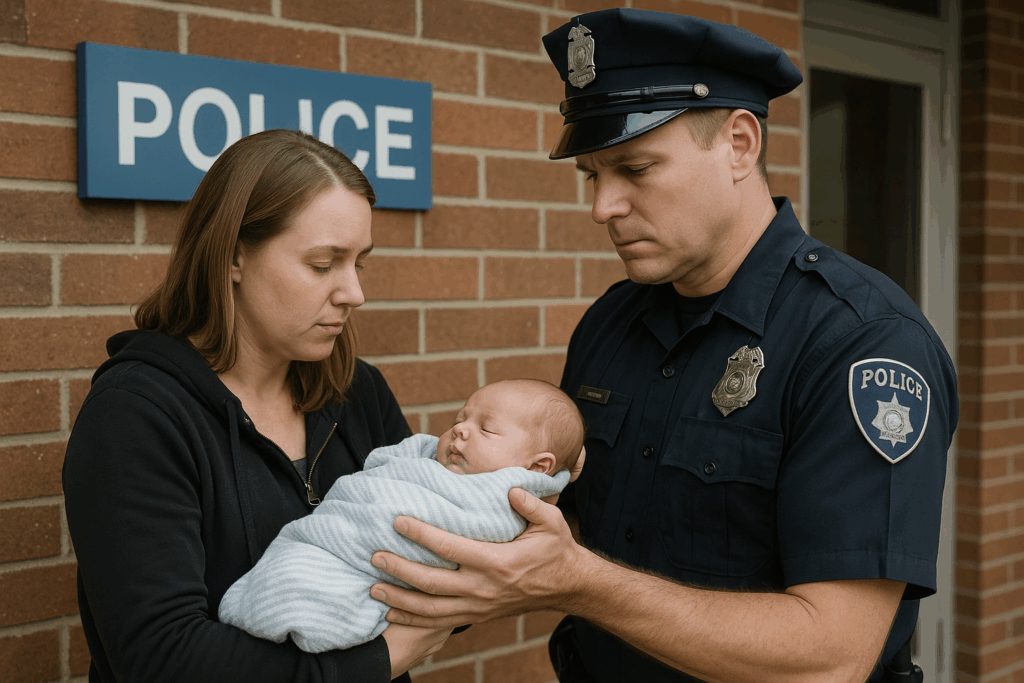
Safe Delivery in Michigan: What You Need to Know About Surrendering a Newborn in 2025
It has now been over 20 years since Michigan enacted its Safe Delivery of Newborns Law—commonly known as the Safe Haven law. This law allows a parent to legally and safely surrender an infant, no more than 72 hours old, to designated professionals at hospitals, police stations, or fire departments. The surrender can be done confidentially and without fear of criminal prosecution for abandonment or neglect.
How the Safe Delivery Law Works
Under Michigan law, a parent can surrender a newborn within three days of birth to a uniformed employee at any of the following:
- A hospital
- A police station
- A fire department
- Or by calling 9-1-1 and handing the baby over to responding emergency personnel
The process is designed to be confidential, safe, and without judgment. Parents are not required to provide identifying information, and they will not face criminal charges as long as the baby is unharmed.
Why Doesn’t Michigan Have Safe Haven Baby Boxes Yet?
In several other states, especially Indiana and Ohio, Safe Haven “baby boxes” are available for parents who want a completely anonymous way to surrender a newborn. These boxes are accessible from the outside of designated buildings, such as fire stations, and are equipped with temperature controls, safety alarms, and automatic locks. When a baby is placed inside, emergency personnel are immediately notified and respond within minutes.
While Michigan lawmakers have proposed similar legislation in the past, former Governor Rick Snyder vetoed previous efforts to introduce baby boxes. His concern was that a face-to-face handoff provided a safer, more immediate connection to emergency care.
New Legislative Push in 2025
As of this year, Michigan lawmakers are once again considering legislation to authorize Safe Haven baby boxes. Two proposed bills—House Bills 4067 and 4069—would amend the existing Safe Delivery law to allow baby boxes at approved locations like fire stations and hospitals. These boxes would be equipped with safety features and monitored to ensure newborns receive immediate attention.
The bills are currently under review, and advocates hope this time Michigan will join neighboring states in offering this alternative for parents in crisis.
A Baby Box Near the Michigan Border
For now, baby boxes remain unavailable in Michigan. However, there are several located just across state lines, including one in Angola, Indiana—a city just minutes from the Michigan border. This location was intentionally chosen to help Michigan residents who want a truly anonymous option for surrendering a newborn without the in-person requirement.
There are currently over a dozen baby boxes in Indiana and several more in Ohio. These locations are legal, secure, and monitored for the baby’s safety.
Where and How to Surrender a Baby in Michigan Right Now
If you’re a Michigan parent and feel unable to care for your newborn, the Safe Delivery law protects you. You can surrender your baby—no more than 72 hours old—at any hospital, fire station, or police department in the state. You will not be asked invasive questions, and you will not face legal consequences for doing so, as long as the baby is unharmed.
If you are not comfortable with the idea of a face-to-face surrender and are considering traveling out of state, you can find more information and exact baby box locations through organizations like Safe Haven Baby Boxes Inc.
No Judgment, No Charges, Just Help
The Safe Delivery law exists to provide a compassionate alternative to unsafe abandonment. Whether you are overwhelmed, frightened, or just not ready to be a parent, surrendering your baby safely ensures the child has a chance to be adopted into a loving home, and it protects you from criminal liability.
If you or someone you know is considering surrendering a newborn—or has already surrendered a child and is now facing legal questions—call The Kronzek Firm at 866-766-5245. Our attorneys are available 24/7 to provide confidential guidance and help protect your rights. You’re not alone, and there is help available.
